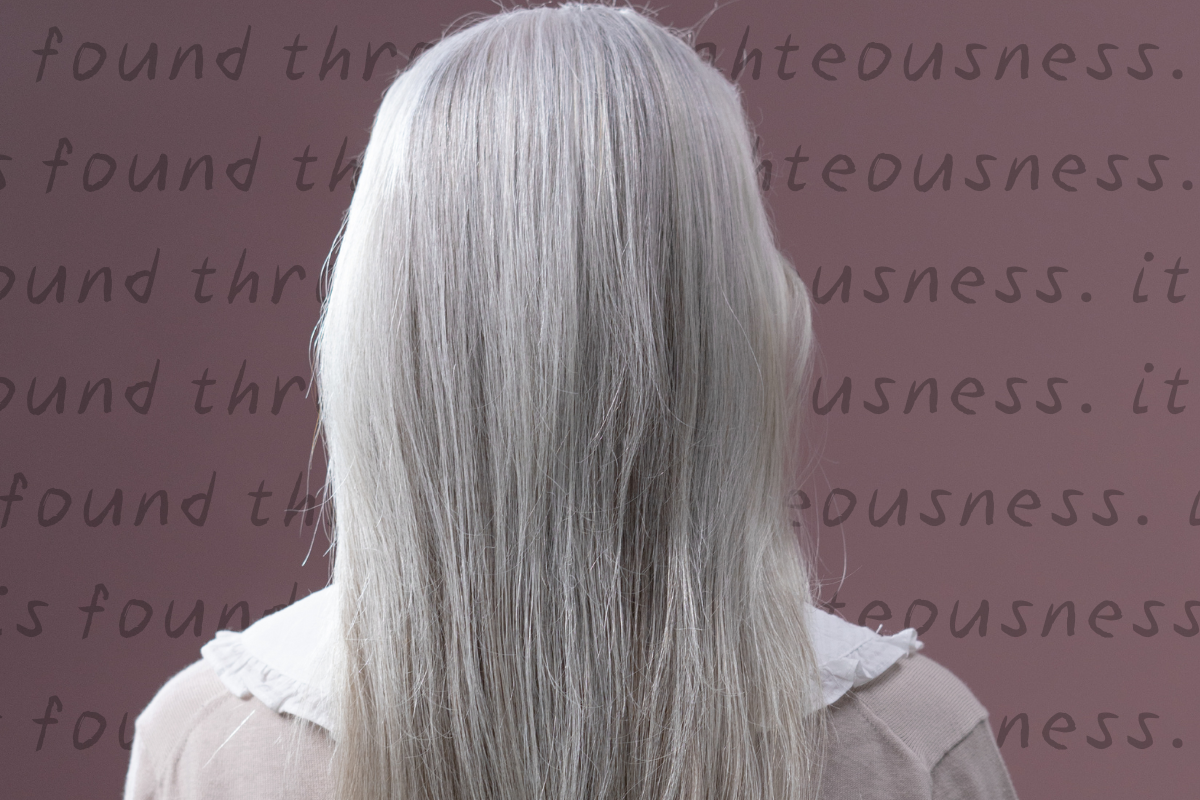I love headbands, especially those made of colorful fabrics. They add intrigue to my locks.
But one evening, months ago, when I looked in my bathroom mirror, I noticed in my hair another kind of headband. It forms naturally across the edge of my scalp. It consists of black and white stripes and has been appearing more regularly.
My gray roots.
They are the real reason why, in my 40s, I love headbands even more. They hide not only a bad hair day, but the reminder that I’m aging.
Usually, when I’d see this gray “crown,” I’d set a night aside for the hour-long process of dyeing my roots to match my original dark brown. But as a single mother to a 4-year-old, who has time?
But there’s another reason why I’ve resisted reaching for the bottle. By covering my gray, I’d be perpetuating a minor fraud.
Anyone who had already noticed my pesky stripes would know that they didn’t disappear by an act of God, who dictates that most women (and men) must, at some point in their lives, lose the pigment cells that dictate a hair’s youthful hue.
My friends cautioned me against staying gray, warning me I’d look “my age,” which, apparently, I should avoid. Nor could I find role models who encouraged the move. My childhood idol, Madonna, is not exactly empowering me to embrace my wrinkles and white hair. She reportedly spent a quarter of a million dollars to try and look like she did when she inspired me to be my true self.
Some Instagram influencers encourage the transition, but few female celebrities stay gray, with exceptions like Helen Mirren, Jamie Lee Curtis and Andie MacDowell. MacDowell has become the unofficial gray ambassador, saying in a widely-watched interview, “Why do we have so much shame attached to getting older? Because it’s an important and valuable time in our lives. We’re towards the end. We don’t have time to waste feeling shame.”
And so I looked to the Jewish world for some wisdom; after all, gedolei ha’dor (the sages of the generations) seem to be identifiable by proud, gray beards. Signs in Israeli buses quote from Leviticus to encourage people to give up their seats for the elderly, reading “Mipnei seivah takum,” or “Rise before a hoary head.” The word “seivah” (hoary head) is often used as a synonym for the elderly, but I’d like to think this phrase refers to more than just our increasing frailty as we age.
It was a saying I found in Proverbs (Mishlei), the compendium of tips for life attributed to Solomon the Wise, that convinced me along my gray path: “A hoary head is a crown of glory; it is found through righteousness.”
Rashi, the great medieval exegete, interprets the verse to mean that righteousness leads to a long life, measured by a “hoary head.” Bereishit Rabah, a midrash on the Book of Genesis, says we learn this idea from Abraham, whom the Torah describes as “old, advanced in years, and Hashem blessed Abraham with everything.” Why did he merit a long life? Because he taught his children to perform “righteousness and justice.”
I hereby interpret Proverbs as follows: Each uncolored growth holds the wisdom and experience acquired from decades of pain, struggle, and triumph — especially the kinds that come from the hair-raising task of raising a Jewish child. I don’t need people to see me as the “hottie” I once was. Let them see the “tzadeket” (righteous person) in me and the Jewish virtues of “righteousness and justice” I’m passing to my daughter. In fact, let them rise to that!
I wonder, sometimes, if I would have continued to dye my hair if I were not a mother, and not just because I’d have more time and money for my vanity. My youth is being transmitted to my daughter. Every wrinkle is met with her increasingly glowing skin; every gray hair, with her fuller mane.
I admit, sometimes I don’t feel as “pretty” as I used to feel, and I’ve added colorful lipsticks and earrings to my headband repertoire. But allow me to quote the silvery sage MacDowell, who said that, as we mature, we should learn to lay off judgment about how women, even Madonna, grapple with aging.
“In 10 years,” MacDowell said, “I might change my mind.”








